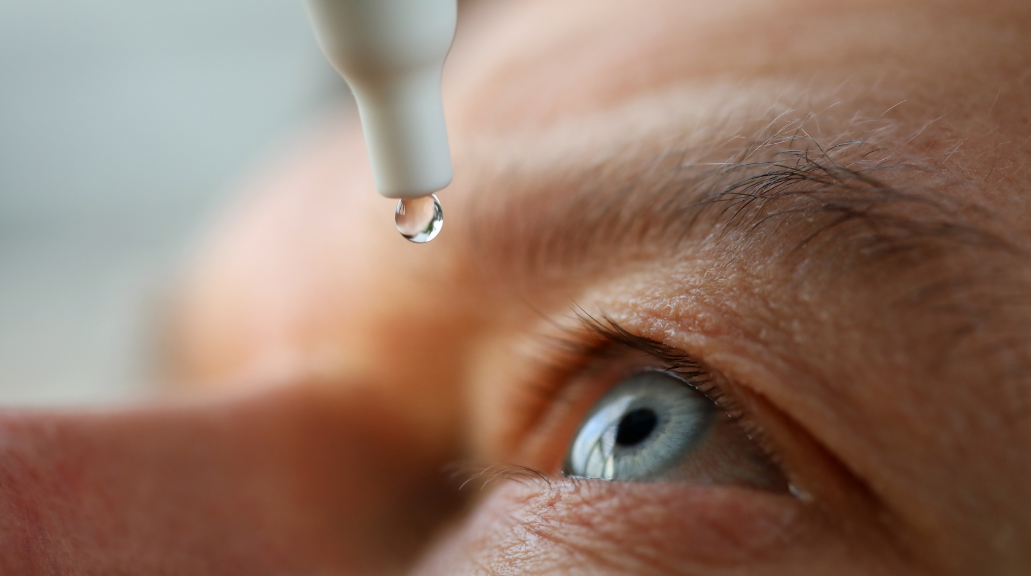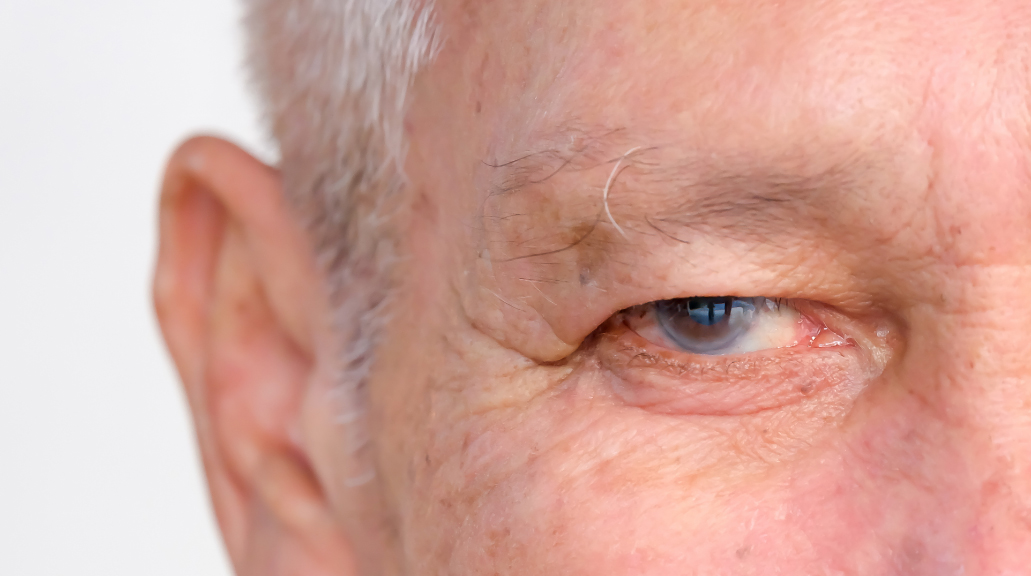What Is Glaucoma?
Glaucoma is an eye condition that damages your optic nerve. It impacts your visual quality and can lead to blindness if left untreated. Glaucoma occurs when fluid increases at the front of your eye and applies pressure to your optic nerve. The optic nerve is an integral part of your eye, consisting of a bundle of nerves that carries visual information from your retina to the brain, helping you process what you’re seeing. So, when fluid builds up in your eye, the pressure on the optic nerve affects your vision, eye health and visual comfort.
Causes of Glaucoma
The main cause of glaucoma is a build-up of fluid and pressure in your eye. There is no apparent reason why this occurs, but there are some factors that can put you at a higher risk, such as:
- Your age – Glaucoma tends to appear as we get older (60+).
- Family history – If your parent(s) had glaucoma, there’s a chance you can develop it, too.
- Medical conditions – Shortsightedness, longsightedness and diabetes can all contribute to glaucoma.
- Your ethnicity – There is a higher risk for people of African, Asian or Caribbean origin.
But generally, glaucoma is caused by pressure in your eyes. Your eyes are incredible organs and often take care of themselves. To keep your eyes hydrated and your vision clear, they produce fluid to keep them moist. At the same time, fluid also drains from your eyes to reduce pressure within your eye. When the fluid in your eye(s) doesn’t drain efficiently, it builds up, increases pressure in your eye, and damages your optic nerve – resulting in glaucoma.
There Are Two Types of Glaucoma:
Open-angle glaucoma
This is when fluid struggles to drain from the drainage angle in your eye. It’s often gradual and the most common type of glaucoma. Many sufferers don’t notice any pain or visual discomfort at first, but the pressure in your eye slowly builds up, damaging your retina without your knowing.
Closed-angle glaucoma
Also known as angle-closed glaucoma and narrow-angle glaucoma, this is when a person’s iris sits close to the drainage angle. The iris can block the drainage angle, resulting in a quick build-up of fluid and eye pressure. This can be very uncomfortable and should be treated straight away.
Symptoms of Glaucoma
Most types of glaucoma have no or very subtle warning signs and symptoms. It is common in older adults, and symptoms can sometimes be associated with eyes naturally ageing. The impact of glaucoma is very gradual, and many don’t realise they have glaucoma until their vision changes, their eyes feel uncomfortable, or an eye test picks it up.
The symptoms of glaucoma differ depending on the type of glaucoma you have:
Symptoms for open-angle glaucoma:
- Unnoticeable symptoms in the early stages
- Patchy vision
- Blind spots in your peripheral vision
- Blurred central vision
Symptoms for closed-angle glaucoma:
- Sudden blurred vision
- Headaches
- Severe eye pain
- Nausea
- Coloured rings or halos around lights

Can You Fix Glaucoma?
Unfortunately, there is no permanent fix for glaucoma, and it’s impossible to reverse any damage to your vision that has been caused by glaucoma. This is why it’s imperative to have regular eye tests; opticians can spot signs early on and introduce preventative measures before too much damage occurs.
Although you cannot fix glaucoma, there are treatments to ease it, improve your vision and reduce any further harm. These treatments often include:
- Eyedrops – These help reduce pressure in your eye and on your optic nerve.
- Surgery – If required, a minor surgical procedure can help your eyes drain fluid.
- Laser treatment – This can unblock drainage angles in your eyes or reduce how much fluid your eyes produce.
Can Surgery Fix Glaucoma?
Once damage has been caused by glaucoma, surgery cannot reverse it. However, surgery can be recommended in glaucoma cases where eye drops or other treatments have not helped reduce the pressure in your eye.
The most common type of glaucoma surgery is called trabeculectomy. It’s a standard procedure where part of the eye-drainage tubes are removed to help drain fluid from your eyes and reduce pressure on your optic nerve. It’s often a day surgery under local or general anaesthetic. It takes about 6 weeks post-surgery for your vision to return to normal, but you should notice less pressure behind your eyes and no further need for eye drops.
Can Glasses Help with Glaucoma?
The primary purpose of glasses is to help correct refractive errors in your eye. As glaucoma is caused by the increased fluid and pressure in your eye, glasses won’t completely fix your sight if you have glaucoma – but they can help with additional eye conditions.
If you have glaucoma, you most likely have another eye condition, such as shortsightedness, longsightedness or astigmatism. Prescription lenses will improve your focus and line of sight if you suffer from one of these conditions, which will, in turn, aid your overall vision and help manage glaucoma.
Best Glasses for Glaucoma
Although glasses cannot cure glaucoma, certain frame styles and lens coatings can support your visual needs and provide a more comfortable viewing experience. For glasses wearers with glaucoma, look out for these features:
Shape and Size of Your Frames
Glaucoma tends to impact your peripheral vision first before your central vision. By opting for larger frames with bigger lenses, you cover more of your field of vision. This can help support any blurred images and sharpen your focus. Use our Frame Finder to find a pair of frames to match your face, style and visual needs from a range of our favourite brands.
Lens Material
Comfort is a big factor for glasses wearers. But if you’re also suffering from glaucoma, lighter lenses can often work in your favour. Look for lenses with a higher index. This means they’re made from a thinner, lighter material that isn’t too weighty on your nose. You should also consider anti-scratch and anti-smudge lenses to minimise any visual disruptions.
Lens Coatings
We offer a lot of lens coatings to enhance your glasses. But for glaucoma patients who are looking for glasses, the following lens finishes are often recommended:
- Brown, amber or yellow tints – These specific lens tints help block harsh lights (natural and artificial), helping your eyes focus on what’s in front.
- UV protection – Always opt for UV lenses to protect your eyes from harmful UV rays.
- Blue light protection – Blue light can be extremely detrimental to your eyes. If you stare at devices all day, a lens with a blue light filter will protect them from harmful rays.
- Polarised lenses – Polarised lenses block reflective glare that can disrupt your line of sight and cause headaches, eye strain, and squinting.
Reglaze Your Glasses with Lensology
If you’re a glasses wearer and have recently been diagnosed with glaucoma, don’t worry – you don’t need to buy another pair of specs. Once you’ve found your favourite frames, we can reglaze your lenses with the best coatings to aid your eye health, visual requirements and overall comfort. Simply request a pack and send your frames to us. Our expert technicians will reglaze your lenses and fit them back into your frames – posting them back to you in no time!







